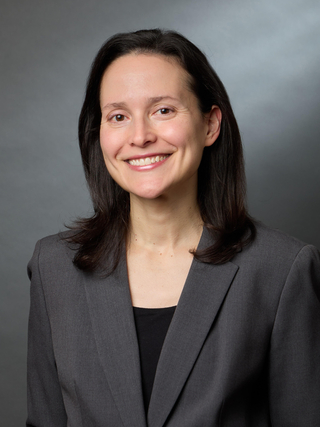Stavroula Hatzios receives major award from Greek philanthropic foundation

H Σταυρούλα Χάτζιου - Stavroula Hatzios
Stavroula Hatzios, associate professor of Molecular, Cellular and Developmental Biology and of Chemistry, has received a major award from the Bodossaki Foundation, which recognizes distinguished early-career scientists of Greek heritage.
Hatzios joined the Yale faculty in 2017 as part of the Microbial Sciences Institute at the University’s West Campus.
She receives the 2025 Scientific Award for the Life Sciences in the field of Biomedical Sciences.
The Hatzios Lab aims to discover new therapeutic tools for gastrointestinal infections and gastrointestinal cancers by combining methods from chemistry and microbiology. To achieve this, the lab focuses on how bacterial and host cells adapt to oxidative stress during infection. Her group has identified critical pathways and antioxidant defense mechanisms that could improve the diagnosis and treatment of severe diseases including gastrointestinal cancers.
The Bodossaki Distinguished Young Scientist Awards acknowledge the creative work of exceptional early-career Greek scientists, honoring them as role models for younger generations and for Greek society as a whole. The Awards cover four academic fields – Basic Sciences, Life Sciences, Applied Sciences, and Social Sciences – and are accompanied by a monetary prize of €20,000 per academic field.
“This award is particularly meaningful to me given the deep appreciation I have for my Greek heritage and the long tradition of scientific excellence that this award represents,” said Hatzios. “I am grateful to the Bodossaki Foundation for recognizing my lab’s work and for acknowledging the fundamental importance that scientific research plays in our society.”
Hatzios received her B.S. in Chemistry from the Massachusetts Institute of Technology and her Ph.D. in Chemistry from the University of California, Berkeley. As a graduate student with Carolyn Bertozzi, she identified an osmotic stress response pathway that modulates the cell wall structure and antibiotic resistance of the tuberculosis pathogen Mycobacterium tuberculosis.
After earning her Ph.D., she was awarded a global health research fellowship to study the population genetics of M. tuberculosis in Uganda. She completed her postdoctoral work in Matthew Waldor’s laboratory at Harvard Medical School and Brigham and Women’s Hospital, where she was a Charles A. King Trust Postdoctoral Fellow.
Hatzios has published numerous papers in international scientific journals and has been awarded, among others, a Sloan Research Fellowship in Chemistry, and a Beckman Young Investigator Award.
Further coverage on CNN Greece is here (translation available).